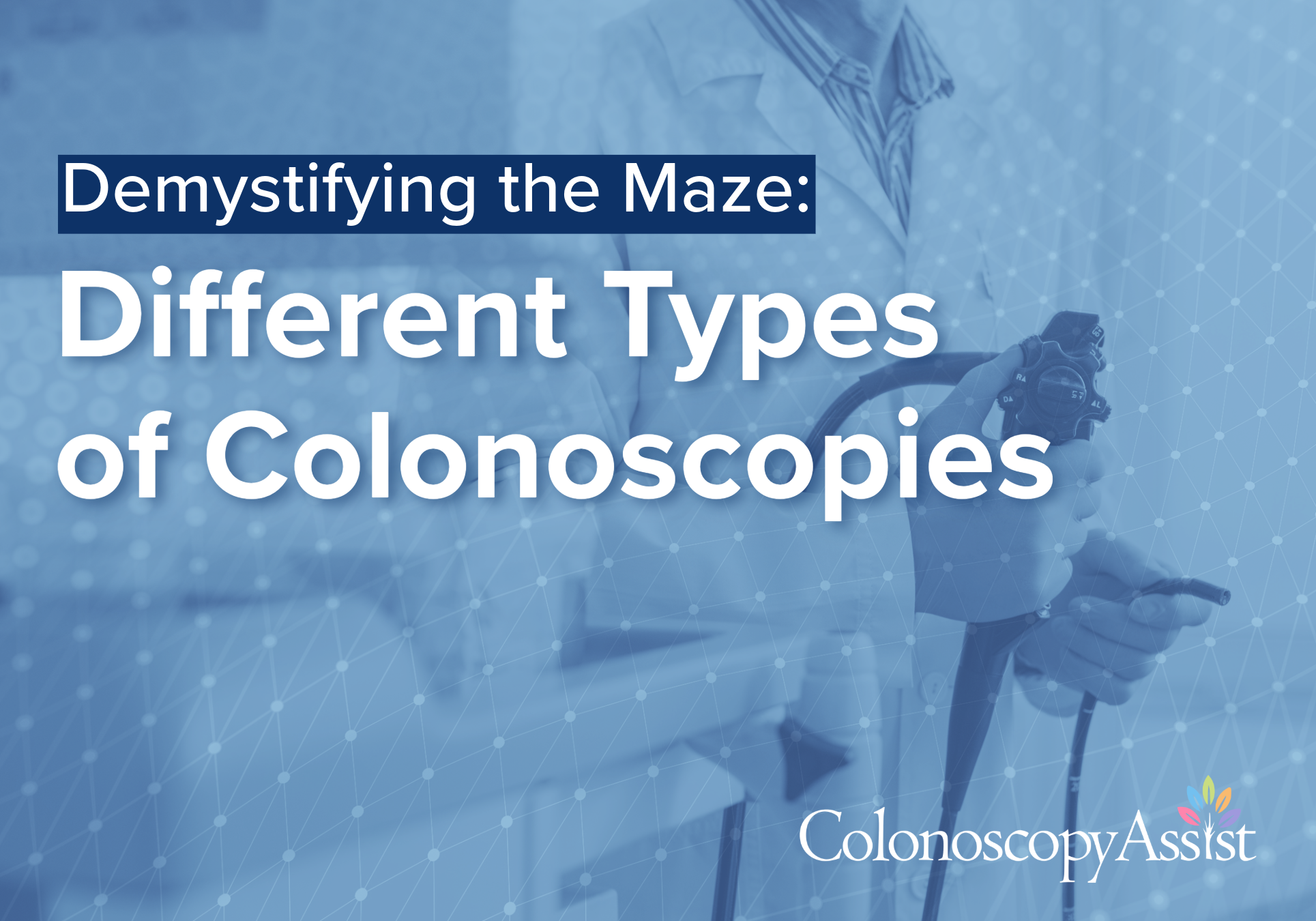Demystifying the Maze: Different Types of Colonoscopies and Their Benefits

When it comes to colon cancer screening, colonoscopy often takes center stage. But did you know there are different types of colonoscopies, each with its own unique applications and benefits? Understanding these variations can empower you to make informed decisions about your own screening journey.
The Classic Colonoscopy:
The traditional full colonoscopy remains the gold standard for comprehensive colon cancer screening. This procedure involves a thin, flexible tube with a camera inserted through the rectum, allowing the doctor to visualize the entire length of the colon (large intestine) and remove any suspicious polyps they encounter.
Benefits:
-
- Highly accurate: Detects even small polyps and precancerous growths.
-
- Preventive: Can remove polyps before they turn cancerous.
-
- One-time procedure: Provides peace of mind for 10 years (in most cases).
Alternative Options:
While the full colonoscopy reigns supreme, other colonoscopy variations offer valuable alternatives in specific situations:
-
- Flexible Sigmoidoscopy: This shorter procedure examines the lower third of the colon, making it suitable for younger individuals or those with a lower risk of colon cancer. However, it might miss polyps higher up in the colon.
-
- Virtual Colonoscopy (CT Colonography): This non-invasive technique uses CT scans to create detailed images of the colon. It's a good option for those with certain medical conditions that preclude a traditional colonoscopy, but it may not detect small polyps as effectively.
-
- Capsule Endoscopy: A tiny pill-sized camera travels through the digestive system, capturing images of the small intestine, typically used for specific concerns in that area.
Choosing the Right Option:
The best type of colonoscopy for you depends on your individual risk factors, medical history, and preferences. Consulting your doctor is crucial to determine the most appropriate approach for your specific needs.
Remember: Early detection is key in the fight against colon cancer. Regardless of the colonoscopy type chosen, adhering to recommended screening guidelines is essential for maintaining optimal gut health and minimizing cancer risk.
References:
-
- American Cancer Society: https://www.cancer.org/cancer/types/colon-rectal-cancer/detection-diagnosis-staging.html
-
- National Cancer Institute: https://www.cdc.gov/cancer/colorectal/basic_info/screening/index.htm
Stay tuned for our next blog post, where we'll delve deeper into the preparation process for your chosen colonoscopy.
In the meantime, ColonoscopyAssist is here to guide you through every step of your screening journey. Contact us today to learn more about our services and how we can help you prioritize your colon health and peace of mind.
Blog & Healthcare News











